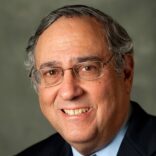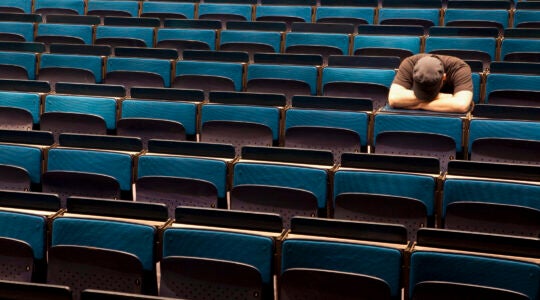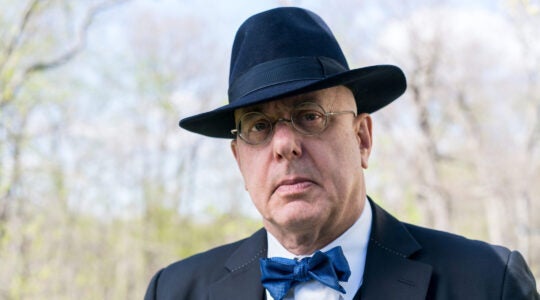Consider the following public statements:
“The International Rabbinic Fellowship (IRF), an Orthodox rabbinic organization with over 180 members, is appalled … by media reports that the Chief Rabbinate of Israel is threatening to not renew Rabbi Shlomo Riskin’s appointment as Chief Rabbi of Efrat. At a time when American Jewish communities of all denominations are growing increasingly pessimistic about the rigidity and narrowness of the rabbinate and its policies, Rabbi Riskin remains one of the few reasons to be hopeful that a more inclusive and humane approach to halacha is still possible in the State.”
And this:
“While the Rabbinical Council of America (RCA) does not agree with every action of the Chief Rabbinate, we support the Chief Rabbinate as the official religious body of Israel. We are certain that, together with Rabbi Riskin, that we will find a way to support his continued work as Chief Rabbi of Efrat.”
Both statements emanate from American Modern Orthodox rabbinical organizations. Both profess to admire Rabbi Riskin greatly, no doubt for his more than five decades of spiritual leadership here and in Israel as a voice for human compassion within Jewish law. But only the first condemns unequivocally the prospect of his forced retirement. The other, in contrast, is mealy-mouthed, expressing the flaccid and pious hope that the matter may be resolved, but at the same time staunchly defending the Chief Rabbinate as the halachic authority for the State of Israel.
The casual observer may easily become confused. In Israel, Modern Orthodox groups such as Tzohar and Ne’emanei Torah Ve’Avodah have leapt to the defense of Rabbi Riskin and embraced his cause as their own. The charedi-dominated Chief Rabbinate opposes him, particularly because of his more flexible stance on conversion and the role of women. Unsurprisingly the IRF sides with Riskin. But why does the RCA, which theoretically embraces Riskin’s vision of an inclusive Orthodoxy, offer such a tepid, pareve response?
One clue may be found by listening to those RCA voices that have spoken out. Rabbi Steven Pruzansky, for example, a prominent member of the RCA Executive, cautions that Riskin’s approach to conversion will wreak havoc by undermining the uniform standard the Chief Rabbinate maintains for personal Jewish status questions in Israel. Moreover, Rabbi Pruzansky fears that Rabbi Riskin’s initiative for educating women as halachic decisors will dilute Jewish tradition and undermine Orthodoxy’s achievements in advancing complete adherence to halacha. Similarly, Rabbi Gil Student, editor of the widely read blog Torah Musings, writes that Rabbi Riskin acts without consulting the leading halachic authorities of the day and has “created surprisingly unorthodox institutions entirely on his own initiative.” Neither Rabbi Pruzansky nor Rabbi Student calls for Rabbi Riskin’s ouster. Like the RCA, both defer to the Chief Rabbinate for a final ruling. By contrast, the IRF, recognizing Rabbi Riskin as courageous leader of Modern Orthodoxy, is “appalled” that the Chief Rabbinate would seek to fire him.
Beyond the facts of the case, this divergence between two rabbinic organizations illustrates the split within Modern Orthodoxy that has been brewing for a generation and has become increasingly acute over the past decade. The RCA, long considered the leading organization of Modern Orthodox clergy, has increasingly lost its self-confidence and forfeited its independence on a wide range of communal issues, including conversion and women’s equality.
And the RCA appears increasingly out of touch with its own constituents. Rabbi Riskin remains an iconic figure among Modern Orthodox Jews. He is justly hailed for his educational and outreach work, which has enhanced the lives of tens of thousands for over five decades in Israel and America. His leadership on issues of personal status responds to the reality that Russian immigrants of questionable halachic status pose a great challenge for Jewish continuity, as does mixed marriage in the diaspora, and that creative solutions in the area of conversion are necessary. Unfortunately, the restrictive conversion guidelines of the Chief Rabbinate and the RCA are of little help. To the obvious dismay of Rabbi Student, Rabbi Riskin has not kowtowed to the intellectual ascendency of the charedi right, but has rather created his own widely admired institutions of higher learning staffed by faculty who share his vision of an inclusive and humane Orthodoxy.
In fact, the split within Modern Orthodoxy transcends Rabbi Riskin. Over the past generation new institutions — Yeshivat Chovevei Torah, Yeshivat Maharat, JOFA and the IRF — have emerged as counterweights to the rightward and isolationist drift within Orthodoxy. Their numbers are small but growing, and their intellectual heft is great. Most important, they uphold a vision of Orthodoxy willing to engage the modern world and work alongside non-Orthodox allies for the collective benefit of the Jewish people.
The current controversy is but one skirmish in a prolonged battle for the soul of Modern Orthodoxy. Given the increasing importance of Orthodoxy in Jewish communal life, in terms of its numbers and vitality, much depends on the battle’s outcome. Let us hope that Rabbi Riskin’s supporters succeed and that his detractors will come to recognize that they are maligning an individual who brings great credit not only to Modern Orthodoxy but to all of Judaism.
Dov S. Zakheim and Steven Bayme serve respectively as chair and director of the Contemporary Jewish Life Commission at the American Jewish Committee.
The New York Jewish Week brings you the stories behind the headlines, keeping you connected to Jewish life in New York. Help sustain the reporting you trust by donating today.





